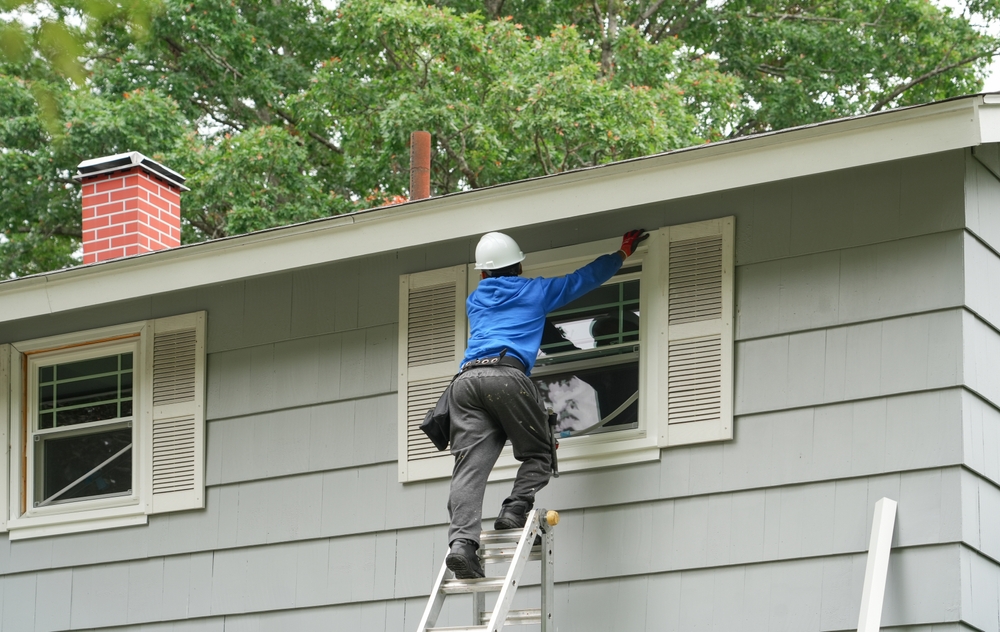Windows do more than bring in sunlight and fresh air: they keep your home comfortable, quiet, and energy-efficient. But when they stop doing their job, you’ll start to notice. Higher energy bills, constant drafts, and windows that stick or won’t stay open can all point to a bigger problem.
If you’re asking “when do windows need to be replaced?” or “how often do windows need to be replaced?”, the answer depends on several factors. Let’s break down the signs to watch for, how often to check, and why timing matters when it comes to swapping out old windows.
How to Tell If You Need New Windows
Windows aren’t always obvious when they fail, but there are warning signs you can’t ignore. If you feel a breeze when the windows are closed or notice condensation between panes, that’s a red flag.
Other signs include difficulty opening or closing the windows or hearing outdoor noise more clearly than before. Another sign is spotting visible damage like cracked glass or rotting frames.
If your energy costs keep climbing, the issue could be drafty windows leaking air in and out. If any of these problems sound familiar, those are clear signs it’s time.
How Often Should Windows Be Replaced?
Most residential windows last about 15 to 20 years, depending on the materials, climate, and how well they were installed. Vinyl windows typically last longer and require less upkeep than wood windows, which are more vulnerable to moisture and rot.
Still not sure how often windows should be replaced? Use the table below as a quick reference:
| Type of Window | Expected Lifespan | Maintenance Needs |
| Vinyl Windows | 20–30 years | Low maintenance |
| Wood Windows | 15–20 years | Regular sealing/painting |
| Double Hung Windows | 15–25 years | Varies based on material |
| Single Pane Windows | <15 years (often less) | Not energy-efficient |
Why Replace Windows at All?
If your current windows are damaged or outdated, replacing them can make a noticeable difference in your home’s comfort and monthly bills. New windows seal tighter, last longer, and look better. They also boost resale value and help prevent bigger issues like frame damage or water leaks.
Here’s why it might be time to make the switch:
- Lower energy bills from improved energy efficiency
- Fewer drafts and cold spots
- Better soundproofing from outside noise
- Easier to open and close
- Enhanced curb appeal and home value
- Less wear on your HVAC system
Whether it’s one drafty window or the whole house, there are real benefits to upgrading.
Best Time to Replace Windows
The best time to replace windows is usually in the spring or fall. These seasons offer milder weather, which makes the window installation process smoother. Plus, your home won’t lose as much heat or cool air during the swap.
Avoid installing during extreme cold or heat if possible. Temperature swings can affect how certain materials set and seal, especially with wood windows.
When choosing the time of year, think about your schedule, too. The longer you wait, the more likely you’ll deal with air leaks and rising energy bills. If you’re seeing signs of wear, now might be the time to replace.
What to Expect from a Professional Window Installation
Choosing the right team matters. A professional installation ensures your new windows are sealed tight and built to last. Here’s what to expect:
Expert Window Installation
Your installer should check for gaps, structural damage, and frame condition before fitting the new window. A tight seal is key to avoiding air leaks and future repairs.
Solid, Secure Window Frames
A good installer will make sure your window frame is level, insulated, and secure. If the frame is warped or rotting, they’ll replace or reinforce it.
Test and Seal
Once the window is in place, the team will test how it opens and closes. Properly installed windows should glide easily and close your windows without resistance.
A damaged window left in place too long can lead to mold, pest problems, or bigger repair costs. Don’t skip the pro help; it’s worth it.
When Do Windows Need to Be Replaced?
If your windows are hard to open, drafty, or over 20 years old, it might be time for a change. Replacing old windows brings comfort, savings, and peace of mind.
Whether you’re seeing signs of damage or just curious, “Do I need new windows?”, staying ahead of the problem is the smart move.
As window installation experts in Houston, we know how Texas heat, humidity, and storms can affect your windows. We install high-quality options that stand up to the climate and help lower your energy costs.
Thinking it might be time for an upgrade? Request a free consultation for your home today!




